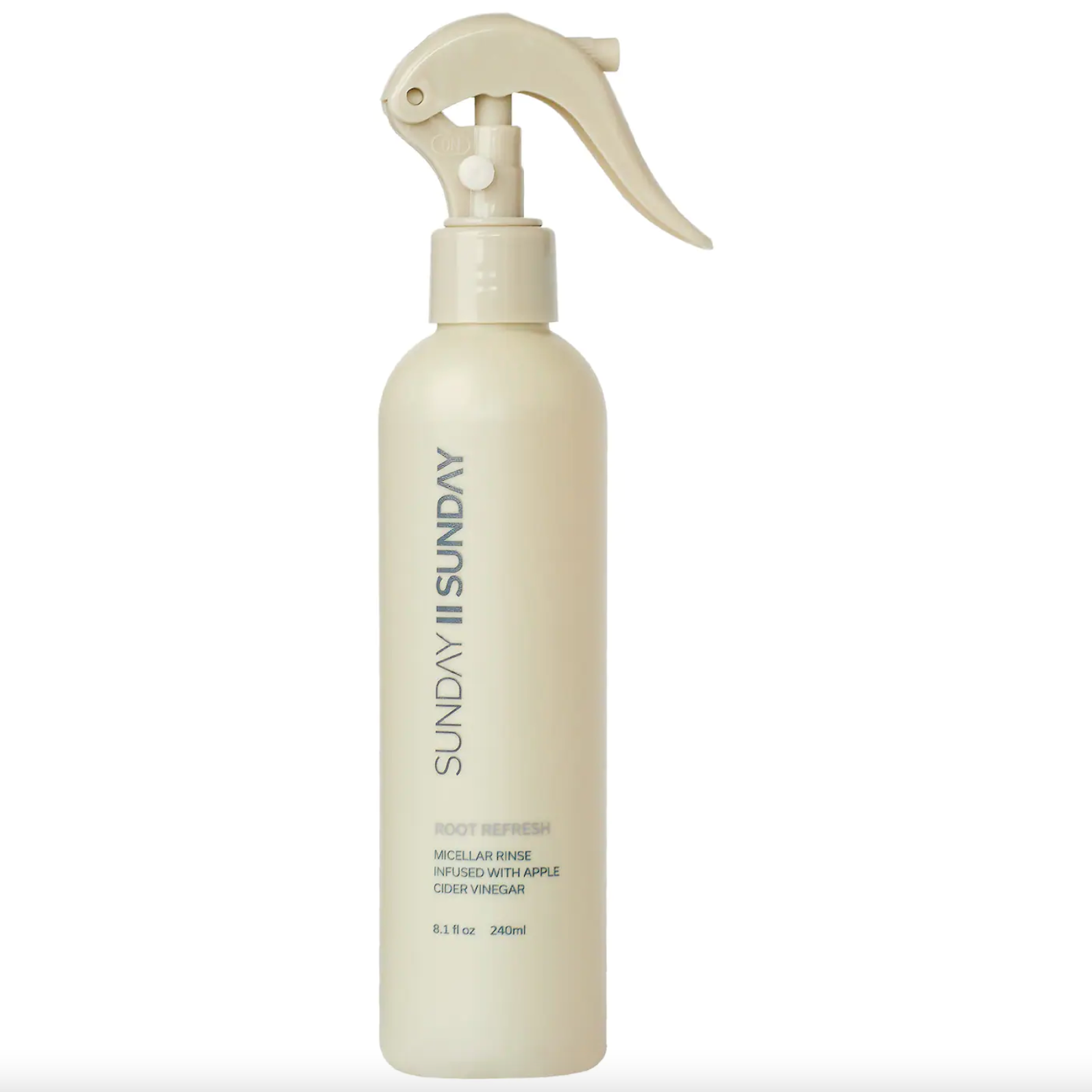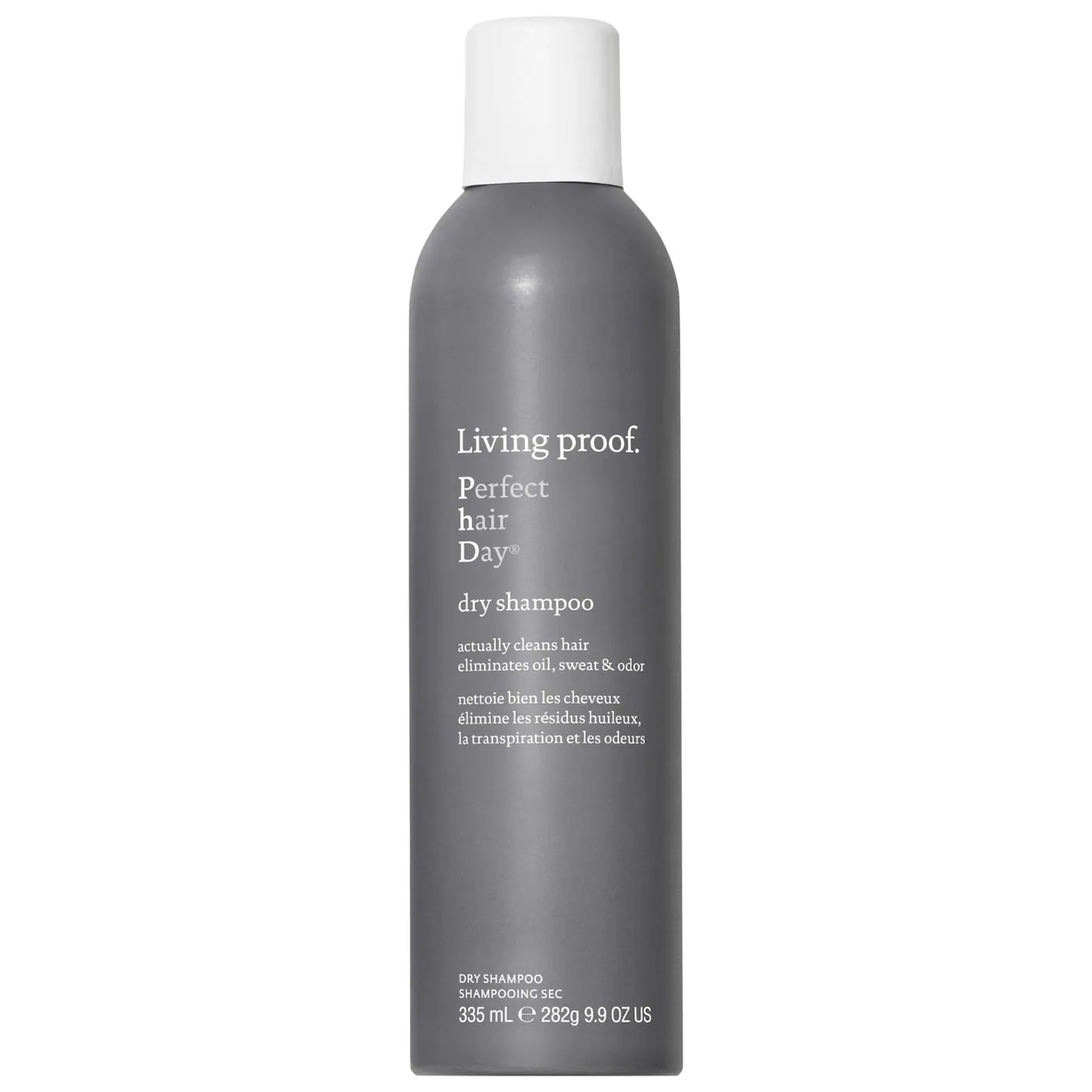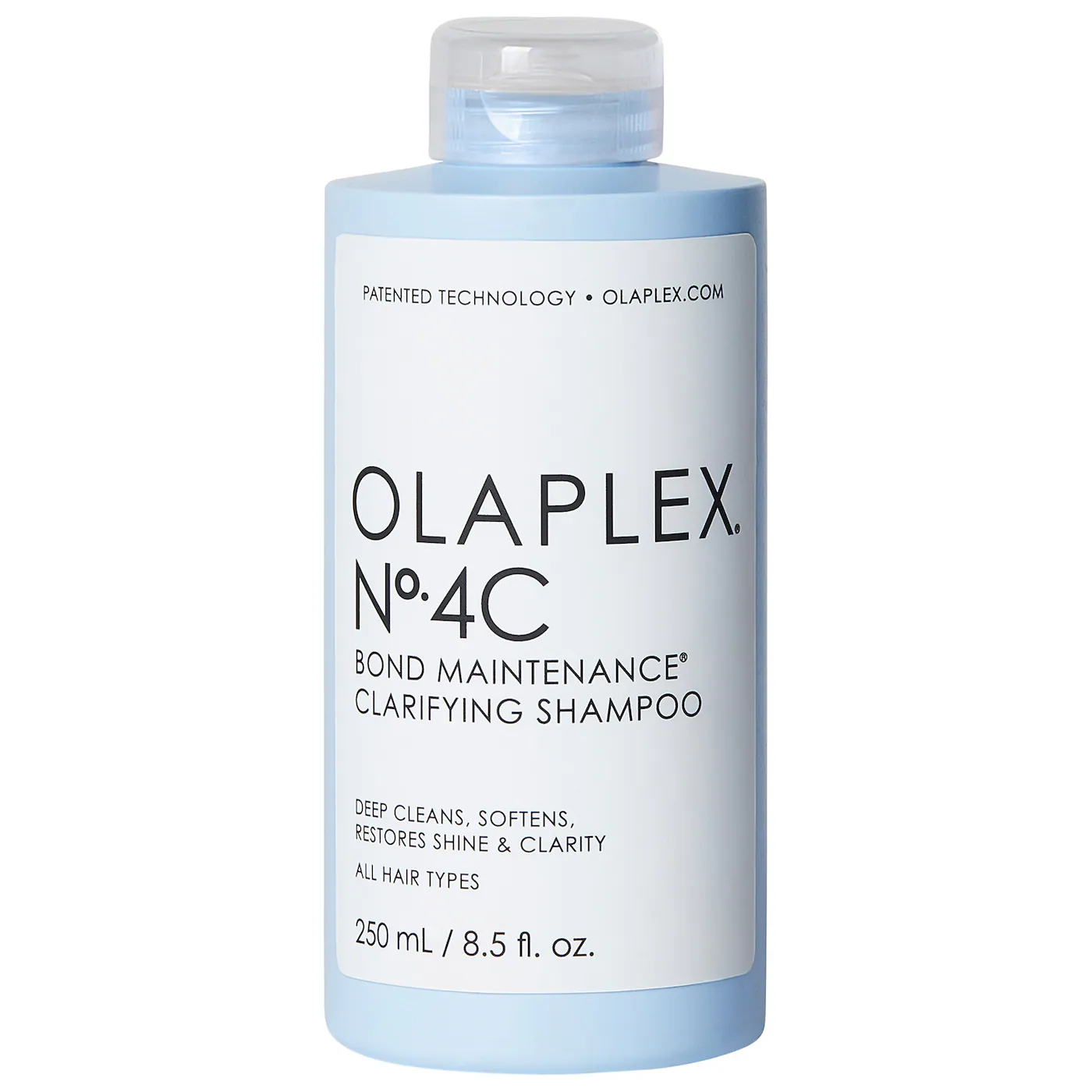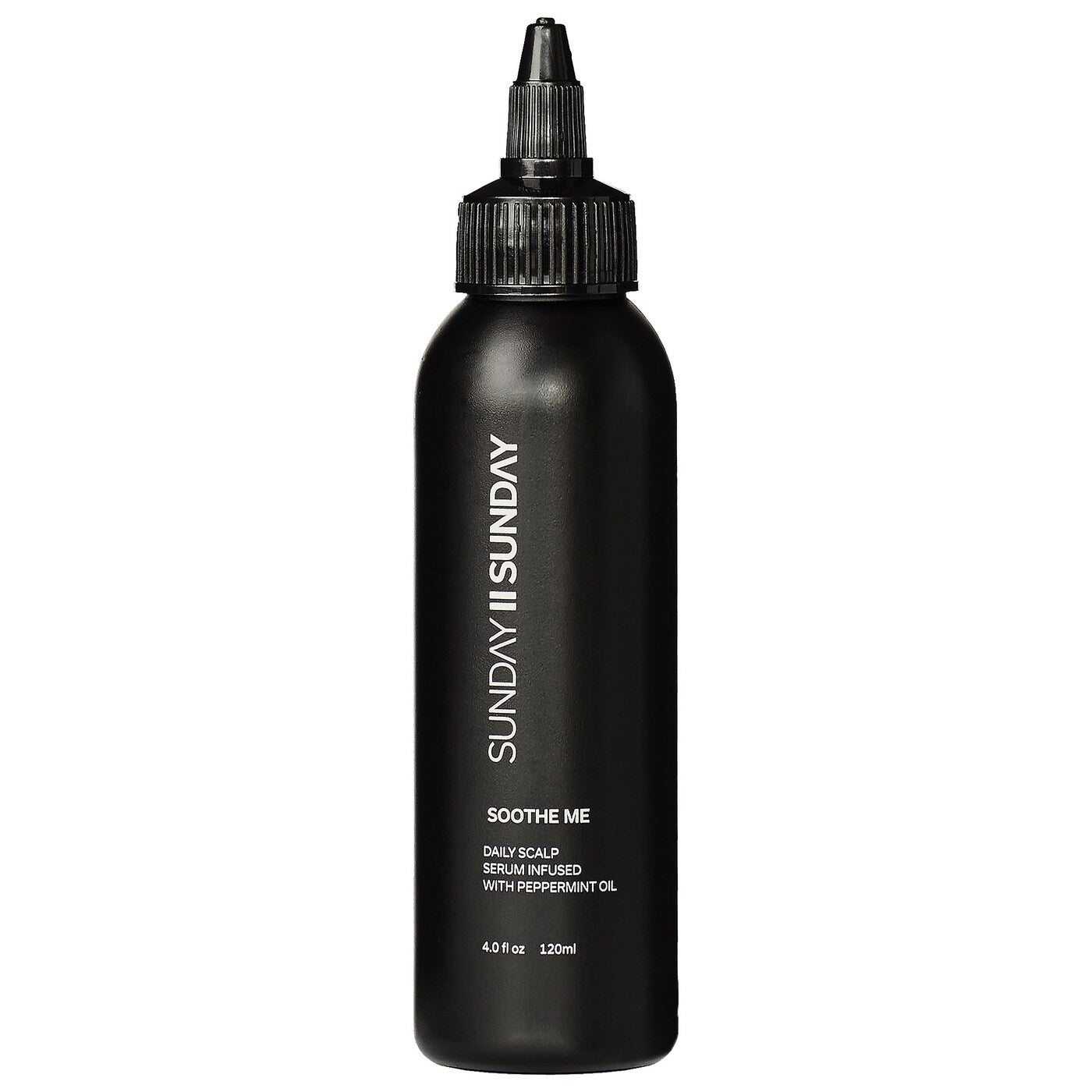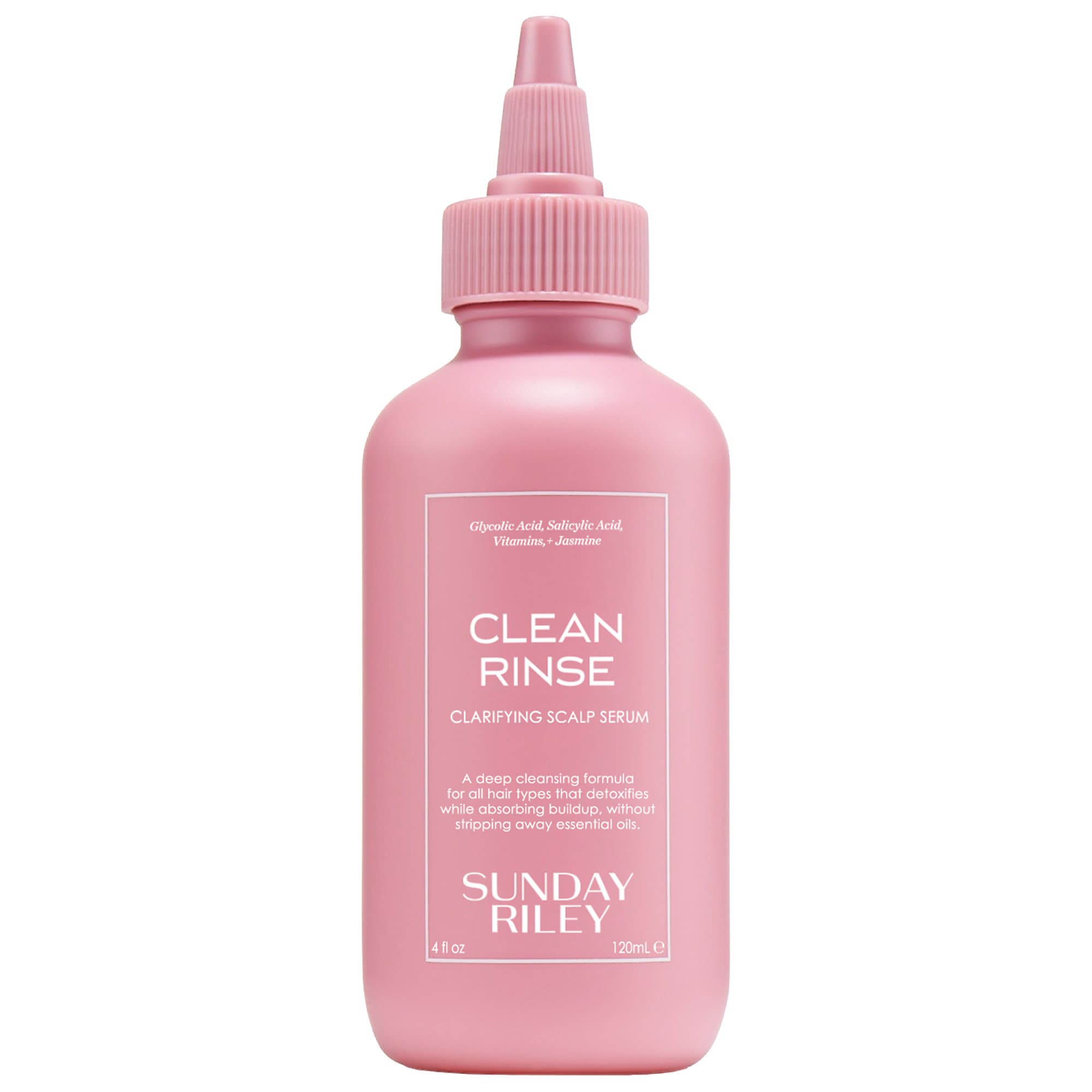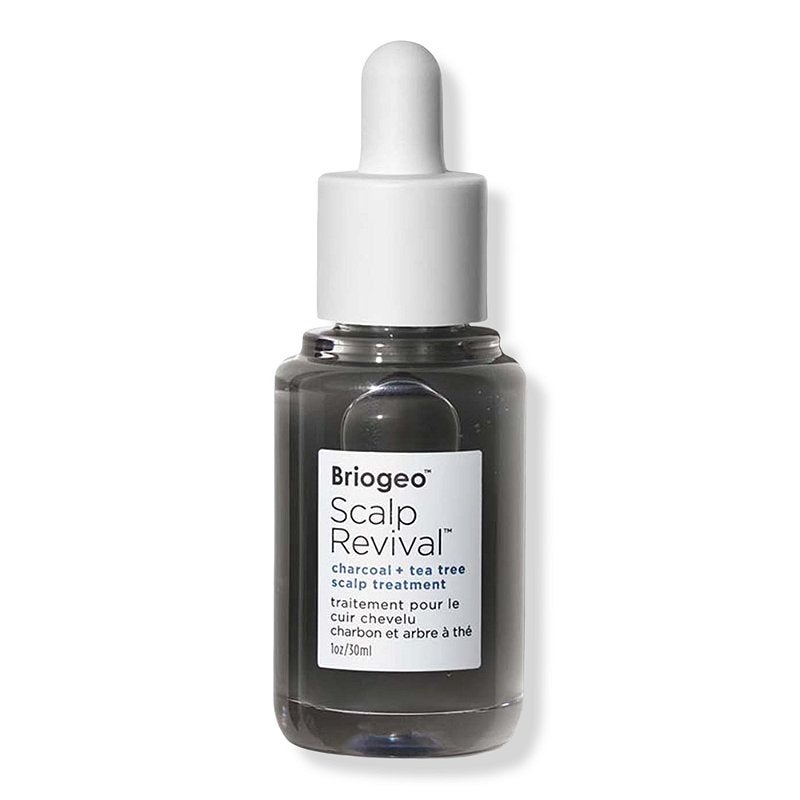I Got My Scalp Analyzed & Turns Out My Dry Natural Hair Was Never The Issue
Photographed by Rochelle Brock
A small camera zooms in uncomfortably close to my scalp, and I start to feel embarrassed. Will it see the years of neglect? I think. God forbid, can they see any dandruff? I’m at the Hair Rituel by Sisley counter at a department store in the UK, and the brand’s smart tool is working to give me a professional scalp and hair diagnosis. The device’s optical sensors collect super-close-up images of my scalp (x110) to get an accurate reading of its overall health. There will be pictures to look at afterward where I’ll see any flakes, dry skin, and redness up close and personal. “It’s looking for uniformity of the scalp, sensitivity of the scalp, state of the pores, hydration of the scalp, and hair density,” says Sisley’s rep. Sisley’s hair analyzer reveals my results and confirms that while my scalp is in good health — uniform, with no irritation, or signs of dandruff — it is a little dry. My natural hair is currently in its latest protective style and, after a mild telling off by my stylist, I have made promises to really look after my scalp during this stint in braids. I still have work to do.
AdvertisementADVERTISEMENT
Being told you have a dry scalp feels like an insult in Black hair circles, doesn’t it? ‘Black hair needs moisture to thrive’ is probably one of the most consistent truisms of natural hair care — and most try to avoid dry hair and scalp for good hair hygiene. Yet, more often than not, I find myself being challenged by what I *thought* I knew about natural hair care and wading into the uncomfortable territory of unlearning some of the hair rituals I, and many Black people, have trusted for generations. In recent years, I’ve come to accept that my beloved hair oils and hair butters don’t necessarily moisturize our hair and can cause product build-up and breakage, rather than prevent it. More so, understanding our hair porosity — the way in which our hair absorbs water — is more important than the 1A-4C hair scale in deciphering our unique hair needs. And, for me personally, possibly the most valuable truth of all: skipping weekly wash days for ‘fear of stripping my scalp of its natural sebum’ will never give me the big, strong, and tall afro of my dreams, and you still need to look after your scalp during protective styles.
L'Oréal Blackett
L'Oréal Blackett gets scalp analysed at Sisley Hair Rituel
Why are natural hair brands obsessed with scalp care right now?
Hair serums, rinsing sprays, scalp scrubs, and miracle hair growth treatment oils specifically targeted at Black scalps are becoming increasingly available on the Black haircare market. Natural and textured hair brands are attempting to re-educate their Black customers on scalp care to prevent issues such as dermatitis, and an itchy, inflamed scalp that can lead to hair breakage, hair loss, and scalp infections. Simply put, a healthy scalp leads to healthy hair follicles and healthy hair. With scalp care becoming priority number one in the hair world, brands across the board have been introducing a method of hair care that mimics the best of skincare by including popular skincare ingredients such as micellar water, AHAs, hyaluronic acid, and squalane into their formulations to help cleanse, exfoliate and nourish the scalp. It’s been dubbed the ‘skinification’ of hair care because your scalp is skin after all.
AdvertisementADVERTISEMENT
L'Oréal Blackett
Sisley scalp analysis results — looking good
Why cleansing is the most important step in scalp care
For Black hair care in particular, this hair care movement sees the promotion of regular hair cleansing as the most important part of wash days — not just moisturizing.
Keenan Beasley, founder of American hair care brand Sunday II Sunday, has been working to minimize the gap in care and treatment solutions for textured hair types after years spent witnessing his mother and sister’s wash days routines. With his brand Sunday II Sunday, Beasley has made scalp care for textured hair a priority by helping simplify the wash day process.“When you think about the general category of hair care, it's obviously very centered around shampoo and conditioner and the reason for that is the cleansing portion is the most important step [in wash days], but when you get into textured hair care, it's all about moisturizing and there's such a fear of cleansing and over-stripping and drying the hair. And so a lot of times women are skipping that step.”
“
“Treat your scalp the same way you treat your face."
Keenan beasley
”
Guilty. I haven’t always treated my natural hair with kindness. For a long time, I viewed my thick afro hair as a problem that needed to be solved and “tamed” — wash days took too long, hair appointments were frustrating and information aimed at textured hair was too complicated. The irony is, at the same time, I romanticized my skincare, adopting lengthy 12-step routines and investing coins into every contraption known to man, meanwhile, my hair has long-suffered neglect, delayed wash days, and too few weeks long in protective styles. My thirsty natural hair, prone to breakage and shedding, wasn’t just a result of bad luck — it was my scalp that has been screaming for more love and attention this entire time.
AdvertisementADVERTISEMENT
“Treat your scalp the same way you treat your face,” explains Beasley. “We wash our face every day because we know that it's impacted by environmental insults, right? Just by being out in the world. I lived in New York, so just being on the subway felt like you needed to shower every time you got off. And it’s the same idea.” “Most of us don't realize that shampoo is not designed for the hair, all shampoos are really designed for the scalp. The conditioner is actually what's for the hair. It’s important to find a daily cleanser that’s not going to over-strip our hair,” explains Beasley.
What are hair serums & are they good for the scalp?
“It’s the exact same thing that we do in our skincare, we put a serum on because we want to get a concentration of nutrients in there,” says Beasley. “When we talk about afro hair, there's an underproduction of sebum, it takes a little bit longer for those natural oils to build up. So for Sunday II Sunday, we're trying to up-regulate that sebum production and create a perfect balance of sebum production across your scalp.”
Black-owned brands such as This Hair Of Mine (THOM) are also helping to revolutionize scalp care by using skin-first ingredients in a hair serum. THOM’s widely praised 3-in-1 scalp serum uses pea peptides to help stimulate the hair follicles, and clarify the scalp from buildup, moisturizing the scalp to promote healthy hair growth. THOM’s founder, Cynthia says that the serum was created to promote a “healthy and functioning scalp and productive follicle growth cycle.” It can be used in between wash day cycles to help lock in moisture, soothe irritation and stimulate hair growth in areas where hair thinning occurs. As well as used as a “deeply reparative” facial for your scalp.
AdvertisementADVERTISEMENT
For those in the US, Beasley recommends using the Sunday II Sunday hair flourish serum as a “spot treatment” during protective styles to help prevent hair loss, especially when using edge control which he warns can be "harsh" on hair.
I’ve been trialing hair serums weekly, including Sisley’s Hair Rituel Fortifying serum for the scalp and, when my braids have felt particularly tight, Pattern’s Scalp Serum. Using hair serums when refreshing my braids has felt like a little luxury (and far less heavy than the oils I previously used), and my scalp feels thankful. I haven’t yet felt the dreaded itchiness I typically feel the longer my braids are in and, as an added bonus, it smells good.
Reconsider dry shampoos for textured hair and scalp care
Not all dry shampoos are created equal, especially when it comes to afro hair types, and can often ruin styles with leftover residue, rather than help hair flourish. Yet, the concept of dry shampoo, a way of cleansing in between wash days, is helpful for textured hair types. “When you look at the dry shampoo market, which a lot of our white counterparts are using, [Dry shampoos] are for grease absorption and that's not a challenge that [Black folk with textured hair] have — we don’t need to absorb grease, we actually needed to remove some of that buildup or even just the salt that's left behind from sweating. So I created a milder solution.”
With Sunday II Sunday, Beasley has created a daily cleansing solution for BETWEEN wash days and offers a root refresh dry shampoo alternative designed for coily hair types that actually cleanses the scalp. There are plenty of others on the market that make similar claims, such as Briogeo’s clarifying dry shampoo ($25), Amika Perk Up Dry Shampoo ($34) and, Living Proof’s Perfect Hair Day Advanced Clean Dry Shampoo ($30)
AdvertisementADVERTISEMENT
What does a good daily scalp routine look like?
As someone who attends the gym 5 days a week and has a busy working life, I always look for ways to maintain my hairstyle and hair health while I sweat. It’s not always been so easy, however, increasingly products that make scalp care an easy daily habit have been appearing on the market.
Sunday II Sunday’s Beasley recommends:
— A daily cleanser that doesn’t mess with your style (“I really believe in micellar water as a gentle surfactant.”)
— A daily hair serum
— A light leave-in conditioner that does not break the style in between wash days, or weigh the hair down.
Beasley understands why many Black people are concerned about overwashing their hair due to fears of drying and damaging their coils but assures that things are changing. “In the US, only 15% of women with textured hair use products that are made for them. This is why you're not satisfied with the solutions because the ‘solutions’ are over stripping, they're too heavy or too strong and have been drying out our hair for decades.”
“I just hate all the nonsense that Black women, like my mother and sister, have been told over the years,” Beasley adds. The lies caused a lot of insecurity when there was no reason for it because, to me, textured hair is the most beautiful hair in the world.”
At Refinery29, we’re here to help you navigate this overwhelming world of stuff. All of our market picks are independently selected and curated by us. All product details reflect the price and availability at the time of publication. If you buy or click on something we link to on our site, we may earn a commission.
This article was originally published to Unbothered UK.
AdvertisementADVERTISEMENT







